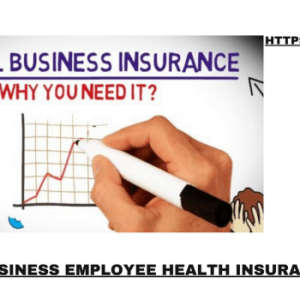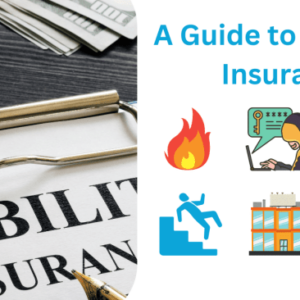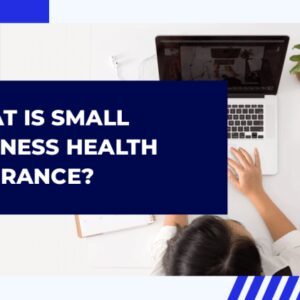Comprehensive general liability insurance for small business: Sounds boring, right? Wrong. This isn’t your grandpa’s insurance policy. It’s the invisible shield protecting your hustle from lawsuits, protecting your hard-earned cash from potential disasters, and ultimately, giving you peace of mind to focus on what really matters: growing your business. Think spilled coffee leading to a nasty fall, a faulty product causing damage, or even a customer tripping over a misplaced rug. These aren’t just hypothetical scenarios; they’re real-life risks that could sink your ship faster than you can say “liability.” This guide cuts through the jargon and helps you understand exactly what you need to protect your business.
We’ll break down the essentials of a CGL policy, explore how coverage needs vary across different industries (from retail shops to tech startups), and guide you through the process of finding the right policy for your unique needs. We’ll even reveal the sneaky exclusions and limitations you need to watch out for, so you’re not left scrambling when disaster strikes. Get ready to become a CGL insurance ninja – your business will thank you.
Defining Comprehensive General Liability Insurance for Small Businesses
Navigating the world of small business insurance can feel like wading through a swamp of jargon. But understanding your risks is crucial for survival, and a comprehensive general liability (CGL) policy is often the cornerstone of that protection. Think of it as your safety net, catching those unexpected bumps and bruises your business might encounter.
Comprehensive general liability insurance for small businesses protects your company from financial losses due to accidents, injuries, or property damage caused by your business operations. It’s a crucial layer of protection that covers a wide range of potential liabilities, offering peace of mind and financial stability. This policy acts as a buffer against lawsuits and legal fees, ensuring you can focus on what you do best: running your business.
Core Components of a CGL Policy
A standard CGL policy typically includes three main coverage areas: bodily injury liability, property damage liability, and personal and advertising injury liability. Bodily injury liability covers medical expenses and other damages resulting from injuries sustained on your business premises or caused by your business operations. Property damage liability covers damage to third-party property caused by your business activities. Personal and advertising injury liability covers things like libel, slander, and copyright infringement. The specific limits of coverage are determined by the policy you purchase, and these should be tailored to the specific risks your business faces.
Types of Risks Covered Under a CGL Policy
CGL policies offer broad coverage for a variety of risks. This includes accidents on your premises, such as a customer slipping and falling; damage caused by your employees while working on a client’s property, such as accidentally damaging a piece of equipment; and claims of advertising injury, such as a false statement made in an advertisement. It’s important to note that exclusions exist, and the specifics of what’s covered vary between policies and insurers. Always review your policy carefully to understand its limits and exclusions.
Examples of CGL Coverage in Action
Imagine a small bakery. A customer trips on a loose floorboard and breaks their arm. The CGL policy would cover the medical expenses and any potential legal costs associated with the claim. Or, consider a landscaping business whose employee accidentally damages a client’s fence while trimming a tree. Again, the CGL policy would help cover the cost of repairing the fence. Finally, a small online retailer using a misleading advertisement could face a lawsuit; their CGL policy could help cover the legal fees and potential settlements. These scenarios highlight the real-world applicability of CGL insurance for small businesses.
CGL Insurance Compared to Other Business Insurance
CGL insurance is different from other types of business insurance, such as workers’ compensation (which covers employee injuries on the job), commercial auto insurance (which covers accidents involving company vehicles), and professional liability insurance (also known as errors and omissions insurance, which covers professional negligence). While CGL covers third-party liability for bodily injury and property damage, these other policies address specific risks related to employees, vehicles, and professional services. Many small businesses need a combination of these policies to achieve comprehensive risk management. It’s crucial to assess your business’s unique needs to determine the appropriate coverage.
Identifying Coverage Needs for Different Small Businesses
Choosing the right general liability insurance (CGL) policy is crucial for protecting your small business from financial ruin. The level of coverage you need depends heavily on the specific risks associated with your industry. One size definitely doesn’t fit all. Understanding these nuances is key to securing adequate protection.
Different businesses face vastly different liability exposures. A retail store, for example, faces different risks than a software development company or a construction firm. This section delves into the specific coverage needs of various small business types, highlighting key risks and policy considerations.
Liability Exposures Across Industries
The type of business significantly impacts the potential liabilities faced. A detailed analysis of these exposures is critical for selecting appropriate CGL coverage.
| Business Type | Key Risks | Coverage Requirements | Policy Considerations |
|---|---|---|---|
| Retail Store | Slip and falls, customer property damage, product liability | High limits for bodily injury and property damage liability; product liability coverage | Consider additional coverage for employee dishonesty or theft |
| Service Business (e.g., plumber, electrician) | Property damage during service, bodily injury to clients, professional negligence | Coverage for property damage and bodily injury; potentially professional liability (Errors & Omissions) insurance | Ensure adequate coverage for potential damages caused by negligence or mistakes. |
| Manufacturing Business | Product liability, workplace accidents, environmental damage | High limits for product liability, comprehensive general liability coverage, potential pollution liability coverage | Thorough risk assessment is crucial; may require specialized endorsements. |
| Restaurant | Food poisoning, slip and falls, burns, alcohol-related incidents | High limits for bodily injury and property damage; consider liquor liability coverage if serving alcohol | Regular safety inspections and employee training are crucial to mitigate risks. |
| Software Development Company | Errors and omissions, data breaches, intellectual property infringement | Professional liability (Errors & Omissions) insurance is critical; consider cyber liability coverage | Clearly define services and exclusions in the policy to avoid ambiguity. |
Common CGL Policy Exclusions and Limitations
It’s essential to understand what your CGL policy *doesn’t* cover. Many policies contain exclusions or limitations that can significantly impact your protection.
- Expected or Intended Injury: This typically excludes liability for injuries that were intentionally caused.
- Contractual Liability: Liability assumed through contracts is often excluded unless specifically included with an endorsement.
- Pollution or Environmental Damage: Unless you have specific pollution liability coverage, environmental damage may not be covered.
- Employee Injuries: Workers’ compensation insurance covers employee injuries, not CGL.
- Auto Accidents: Damage caused by company vehicles usually requires separate commercial auto insurance.
Factors Influencing CGL Insurance Costs
Several factors play a significant role in determining the cost of your CGL insurance premium. Understanding these can help you manage your expenses.
- Business Type and Industry: High-risk industries naturally command higher premiums.
- Number of Employees: More employees often mean a higher risk of accidents and therefore higher premiums.
- Location: Businesses in high-crime or accident-prone areas may face higher rates.
- Claims History: A history of claims will likely result in higher premiums.
- Coverage Limits: Higher coverage limits mean higher premiums.
- Deductible: Choosing a higher deductible can lower your premium.
The Policy Application and Purchasing Process
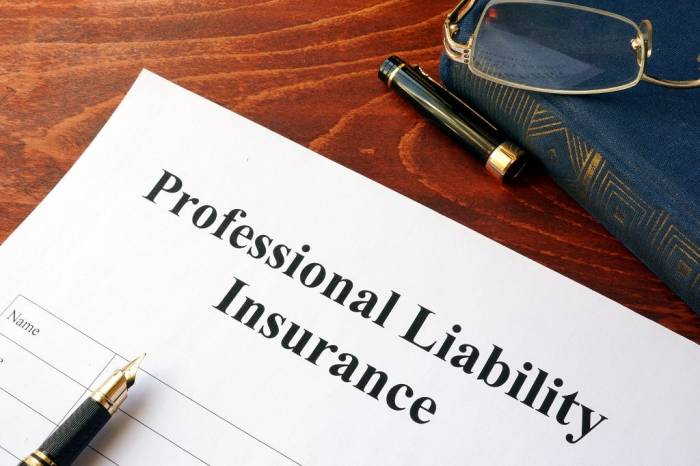
Source: medium.com
Securing comprehensive general liability (CGL) insurance for your small business might seem daunting, but understanding the process can make it surprisingly straightforward. This section breaks down the steps involved in obtaining quotes, completing applications, and comparing offers to find the best coverage for your needs. Remember, the right insurance is crucial for protecting your business from potential financial losses.
Getting a CGL insurance quote typically involves several key steps. First, you’ll need to gather essential information about your business, including its type, location, and the nature of its operations. Then, you’ll contact insurance providers, either directly or through a broker, and provide them with this information. They will then use this data to assess your risk profile and generate a quote outlining the potential cost and coverage options. This process usually involves a brief initial consultation to clarify any uncertainties.
Obtaining CGL Insurance Quotes
The initial step in securing CGL insurance involves contacting multiple insurance providers to obtain quotes. This allows for a comparison of pricing and coverage options. You can contact providers directly through their websites or by phone, or you can utilize the services of an independent insurance broker who can compare quotes from various companies on your behalf. Remember, comparing quotes is essential to finding the most cost-effective and comprehensive policy for your business.
Information Required on a CGL Insurance Application
Insurance providers require comprehensive information to assess your risk and determine appropriate coverage. A typical application will request details about your business, including its legal name, address, and the date it was established. You’ll also need to provide information about your business operations, including the types of services or products offered, the number of employees, and the locations where you operate. Additionally, the application will ask for details about your previous insurance history, any claims filed, and the desired coverage limits. Accurate and complete information is crucial for a smooth application process.
Comparing CGL Insurance Quotes
Once you have several quotes, comparing them carefully is vital. Don’t just focus on price; consider the scope of coverage offered by each provider. Pay close attention to the policy limits for bodily injury and property damage, as well as the exclusions and limitations Artikeld in the policy documents. Look for any gaps in coverage that might leave your business vulnerable. Consider the provider’s reputation and financial stability as well. A reputable insurer with a strong financial rating will provide greater peace of mind. Creating a simple comparison table can be very helpful in this process. For example, a table could list each provider, their price, coverage limits, and any significant exclusions.
Negotiating Favorable Terms and Conditions
While you might not be able to negotiate the price drastically, you can often negotiate certain terms and conditions. For example, you could attempt to negotiate broader coverage, reduce exclusions, or add specific endorsements tailored to your business’s unique needs. Be prepared to justify your requests with evidence of your business’s risk profile. Remember, a strong understanding of your business’s needs and a clear articulation of your requirements will strengthen your negotiating position. This often involves a back-and-forth discussion with the insurance provider or their representative. Be polite but firm in advocating for the terms you require.
Understanding Policy Exclusions and Limitations
Navigating the world of small business insurance can feel like deciphering a secret code. While comprehensive general liability (CGL) insurance offers a crucial safety net, understanding its limitations is just as important as understanding its coverage. Knowing what isn’t covered can save you from costly surprises down the line. This section clarifies common exclusions and limitations to help you make informed decisions.
Policy exclusions are specific situations or types of claims that your CGL policy will not cover. These exclusions are carefully defined within the policy document, and ignoring them could leave your business vulnerable to significant financial losses. Understanding these limitations is paramount for effective risk management.
Common Exclusions in CGL Insurance Policies
It’s vital to understand that CGL policies don’t cover everything. Many common exclusions exist, and these vary slightly depending on the insurer and specific policy. However, some exclusions are nearly universal. Familiarizing yourself with these common exclusions is a critical step in protecting your business.
- Expected or Intended Injury: This excludes claims arising from injuries or damages you intentionally caused. For example, if you deliberately pushed a customer, your CGL policy wouldn’t cover the resulting injuries.
- Contractual Liability: Generally, CGL policies don’t cover liabilities you assumed through a contract. This means if you contractually agreed to be responsible for damages, your CGL policy likely won’t cover it.
- Pollution or Environmental Damage: Most CGL policies exclude pollution-related claims, whether accidental or intentional. This typically includes contamination of air, water, or soil.
- Liquor Liability: If your business serves alcohol, you’ll likely need a separate liquor liability policy. Standard CGL policies usually exclude liability arising from alcohol-related incidents.
- Employee Injuries (Workers’ Compensation): CGL insurance does not cover injuries to your employees. You need a separate workers’ compensation policy for that.
- Auto Accidents: Damages caused by your company vehicles are usually excluded from CGL coverage and require a separate commercial auto policy.
Implications of Policy Exclusions for Small Business Owners
Ignoring policy exclusions can have serious consequences for small business owners. A claim denied due to an exclusion can leave you facing significant financial responsibility for damages, legal fees, and settlements. This could potentially lead to business closure. Understanding these limitations allows for proactive risk mitigation strategies. For example, if your business involves activities frequently excluded by CGL policies, you might need additional coverage.
The Importance of Reviewing Policy Documents Carefully Before Purchasing Insurance
Before signing on the dotted line, thoroughly read your entire CGL policy document. Don’t just skim it; understand the details of what is and isn’t covered. If anything is unclear, ask your insurance agent for clarification. This proactive approach will prevent misunderstandings and potential disputes later. Consider having a legal professional review the policy if you have complex business operations.
Filing a Claim Under a CGL Insurance Policy
The process of filing a claim typically involves reporting the incident promptly to your insurance provider. This usually involves providing detailed information about the incident, including dates, times, and involved parties. You will likely need to complete claim forms and provide supporting documentation such as police reports or medical records. Your insurer will then investigate the claim to determine coverage and liability. Cooperation with the insurer throughout the process is crucial for a successful claim resolution. Following the insurer’s instructions and deadlines is essential.
Managing Risk and Preventing Liability Claims
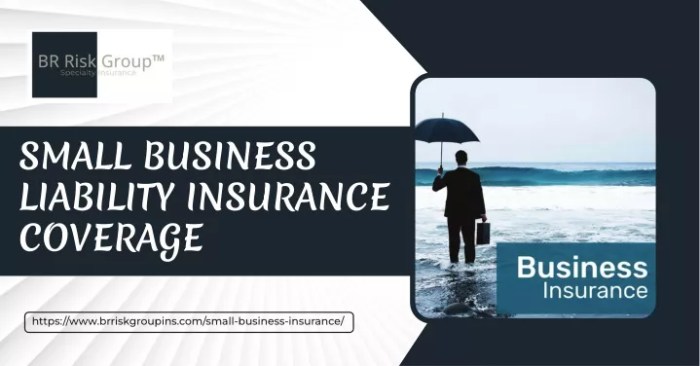
Source: slideserve.com
Protecting your small business from liability isn’t just about having insurance; it’s about proactively minimizing risks. A comprehensive general liability (CGL) policy is a crucial safety net, but it’s far more effective when paired with a robust risk management strategy. Think of it like this: insurance is your parachute; risk management is your flight training. Both are essential for a safe landing.
Proactive risk management can significantly reduce the likelihood of liability claims, saving you time, money, and headaches down the line. It’s about identifying potential hazards, implementing preventative measures, and maintaining meticulous records. This proactive approach not only reduces your chances of facing a lawsuit but also demonstrates responsible business practices, potentially leading to better insurance rates and a stronger reputation.
Navigating the world of small business insurance can feel like a maze, but securing comprehensive general liability coverage is a non-negotiable. For peace of mind and robust protection, consider checking out the options offered by lennon insurance , a provider known for its straightforward policies. Ultimately, the right general liability insurance will safeguard your small business from unforeseen liabilities and help you focus on what truly matters: growth.
Risk Management Checklist for Small Businesses
Developing a comprehensive risk management plan is vital for any small business. This checklist provides a starting point for identifying and mitigating potential liabilities. Remember, the specific risks will vary depending on your industry and operations.
- Regular safety inspections of your premises to identify and rectify hazards (e.g., tripping hazards, fire hazards).
- Implementation of clear safety protocols and training for all employees, including proper handling of equipment and materials.
- Maintenance of accurate records of all safety training, inspections, and incident reports.
- Ensuring compliance with all relevant local, state, and federal regulations and permits.
- Use of appropriate safety equipment and protective gear for employees and customers where necessary.
- Establishing and maintaining clear contracts with vendors and clients, outlining responsibilities and liabilities.
- Regular review and update of your risk management plan to reflect changes in your business operations or the regulatory environment.
- Implementing a system for promptly addressing and documenting customer complaints or concerns.
- Investing in professional liability insurance (Errors and Omissions insurance) if applicable to your business type.
- Regularly reviewing and updating your business insurance policies to ensure they adequately cover your evolving needs.
Examples of Proactive Measures to Prevent Liability Claims
Beyond the checklist, specific actions can dramatically reduce your exposure to liability. These proactive measures demonstrate a commitment to safety and responsible business practices.
For example, a bakery regularly cleaning its floors to prevent slips and falls shows a commitment to customer safety. A landscaping company providing detailed contracts specifying work scope and liability limits protects against disputes. A software company regularly backing up its data minimizes the risk of data loss and associated client claims. These measures not only reduce the chance of accidents but also show insurers you’re taking steps to manage your risk, potentially influencing your premiums.
Scenarios Where a CGL Policy Would and Would Not Cover a Claim
Understanding the scope of your CGL policy is crucial. It’s not a blanket guarantee against all potential liabilities.
Scenario 1 (Covered): A customer slips and falls on a wet floor in your store, resulting in injury. Your CGL policy would likely cover the medical expenses and potential legal costs associated with the claim, provided the accident occurred on your premises and was not due to intentional negligence.
Scenario 2 (Not Covered): An employee intentionally damages a client’s property. CGL policies generally exclude intentional acts. Your employee’s actions might fall under workers’ compensation, but not your CGL.
Scenario 3 (Covered): A client alleges damage to their property due to your company’s negligent work. If the claim is valid and not excluded by your policy, your CGL policy would likely cover the costs of repair or replacement and any legal fees.
Scenario 4 (Not Covered): Your business is sued for product liability due to a defect in a product you manufactured. This would typically fall under a product liability insurance policy, not a CGL policy.
Importance of Maintaining Accurate Records and Documentation
Meticulous record-keeping is paramount for managing risk and defending against liability claims. This includes maintaining detailed records of safety training, inspections, incident reports, contracts, and customer interactions. These records serve as crucial evidence in the event of a claim, demonstrating your commitment to safety and responsible business practices. Accurate documentation can strengthen your defense and potentially lead to a more favorable outcome.
Imagine a scenario where an employee is injured on the job. Comprehensive records of safety training, equipment inspections, and incident reports would be vital in proving you took reasonable steps to ensure workplace safety. Similarly, detailed contract documentation can help resolve disputes with clients and protect your business from unwarranted claims.
The Role of Insurance Brokers and Agents
Navigating the world of comprehensive general liability insurance (CGL) can feel like wading through a swamp of jargon and fine print. That’s where insurance brokers and agents come in – they’re your expert guides, helping you find the right coverage at the right price. Understanding their roles and how to choose the best one for your small business is crucial for securing adequate protection.
Insurance brokers and agents offer invaluable assistance in the process of obtaining CGL insurance. They act as intermediaries between you and insurance companies, simplifying the often-complex process of finding and securing the right policy. Their expertise saves you time, money, and potential headaches down the line.
Benefits of Using an Insurance Broker or Agent
Using a broker or agent offers several key advantages. They possess in-depth knowledge of the insurance market, allowing them to compare policies from multiple insurers and identify the best options tailored to your specific needs and budget. This competitive analysis ensures you’re not overpaying for coverage and are getting the most comprehensive protection available. They also handle all the paperwork and negotiations, freeing up your valuable time to focus on running your business. Furthermore, they can provide ongoing support and guidance, assisting with claims processing and policy renewals. Think of them as your insurance concierge, always available to answer your questions and advocate for your best interests.
Services Provided by Insurance Brokers and Agents
Insurance brokers and agents offer a comprehensive range of services. These include identifying your insurance needs, researching and comparing quotes from various insurers, explaining policy terms and conditions, assisting with the application process, negotiating favorable terms, and advocating on your behalf in the event of a claim. They can also provide valuable risk management advice, helping you identify and mitigate potential liabilities within your business operations. Beyond the initial policy acquisition, they often offer ongoing support, including policy reviews and adjustments as your business evolves. Many also provide educational resources and workshops to keep you informed about changes in insurance regulations and best practices.
Comparison of Insurance Brokers and Agents, Comprehensive general liability insurance for small business
While both brokers and agents help you find insurance, there’s a key difference: agents typically represent a single insurance company, while brokers represent multiple companies. An agent’s recommendations are naturally limited to the products offered by their insurer, whereas a broker can offer a wider range of choices and tailor a solution from the best fit among several companies. This broader perspective often leads to more competitive pricing and a more suitable policy. Choosing between a broker and an agent depends on your priorities; if you value a wide selection and unbiased advice, a broker is often preferred. If you prefer a more personalized, one-on-one relationship with a single insurer, an agent might be a better fit.
Factors to Consider When Selecting an Insurance Broker or Agent
Choosing the right insurance broker or agent is a critical decision. Consider their experience and expertise in handling CGL insurance for businesses similar to yours. Look for someone with a proven track record and positive client reviews. Investigate their licensing and certifications to ensure they’re reputable and qualified. Consider their accessibility and responsiveness; you’ll need someone who’s readily available to answer your questions and address your concerns. Finally, compare their fees and service offerings to find the best value for your investment. A thorough vetting process will ensure you select a partner who will protect your business interests effectively and efficiently.
Conclusion
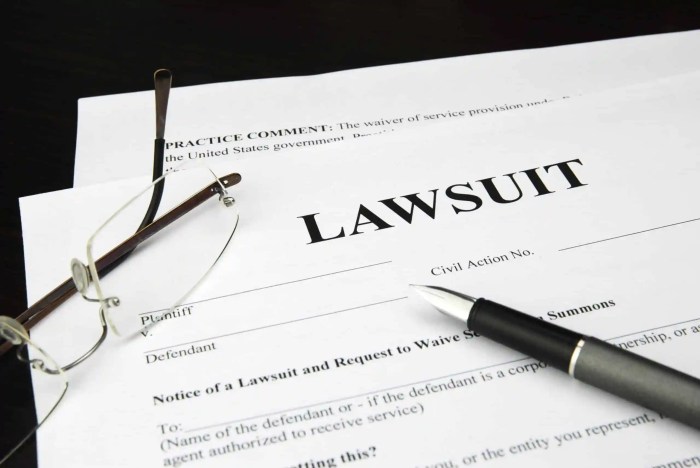
Source: 1800thelaw2.com
Navigating the world of comprehensive general liability insurance for small businesses doesn’t have to be a headache. By understanding the core components of a CGL policy, identifying your specific needs, and diligently comparing quotes, you can secure the protection your business deserves. Remember, this isn’t just about ticking a box; it’s about safeguarding your future and ensuring your hard work doesn’t go down the drain because of an unforeseen incident. So, ditch the fear and embrace the shield – your business deserves it.

